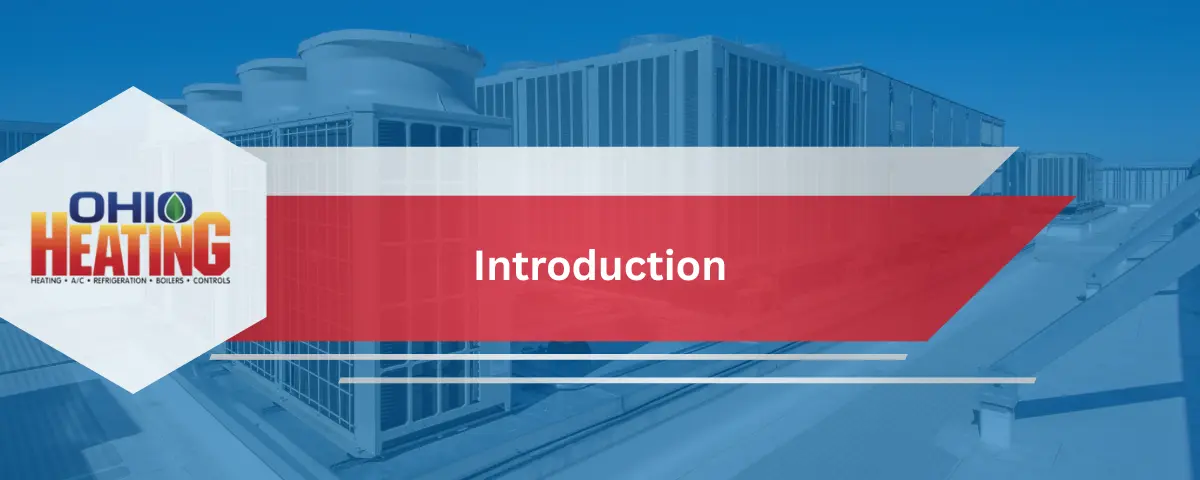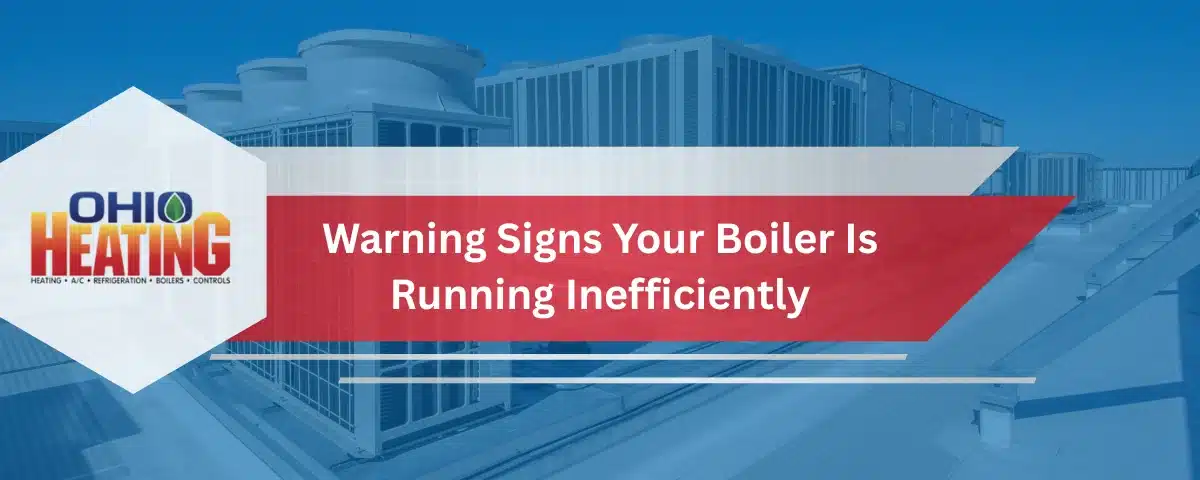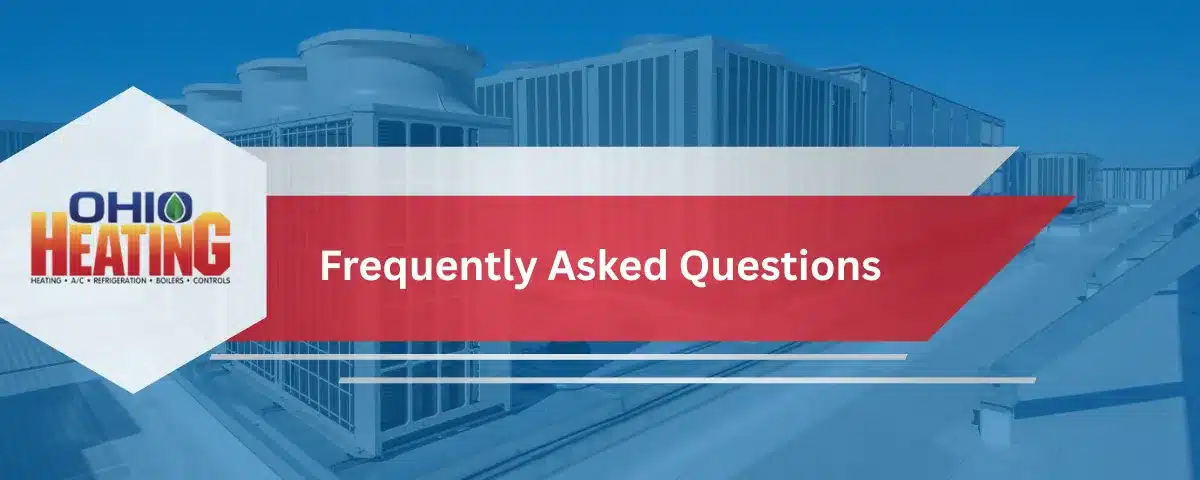Key Takeaways
An inefficient boiler in Columbus can drive up heating costs and put your family’s comfort at risk during Ohio’s long winters.
Warning signs include noisy operation, fluctuating room temperatures, rising fuel bills, and uneven heating.
Boilers that struggle often need cleaning, tune-ups, or replacement of worn parts before winter arrives.
Columbus homeowners should schedule annual boiler maintenance and know the warning signs before cold weather sets in.
Investing in efficiency not only lowers bills but also extends the life of your heating system.

Introduction
Columbus winters can be long, cold, and demanding on home heating systems. From December through February, average temperatures often dip below freezing, and heating is essential. For homeowners who rely on boilers, the system must run smoothly to keep living spaces safe and comfortable.
Unfortunately, many people do not realize their boiler is running inefficiently until a breakdown happens in the middle of winter. By then, repair costs are higher, comfort is lost, and fuel bills are already inflated. Knowing the warning signs ahead of time is the best way to prevent surprises.
This guide explains the most common signs that your Columbus boiler may be struggling, what those symptoms mean, and what steps you can take before the coldest months arrive.
Why Boiler Efficiency Matters in Columbus Homes
Boilers are popular in older Columbus neighborhoods like German Village, Clintonville, and Victorian Village. These homes often rely on radiator heating, which is powered by a boiler. When boilers run efficiently, they heat water or steam with minimal fuel, providing steady comfort throughout the house.
When boilers begin to lose efficiency, the problems add up quickly:
Higher utility bills even if your habits stay the same.
Uneven heating with some rooms too hot and others too cold.
Shorter system lifespan due to extra wear and tear.
Increased risk of breakdowns during the peak of winter.
With heating costs already high in Ohio, an inefficient boiler is more than just an inconvenience. It can be a major financial burden if left unchecked.

Warning Signs Your Boiler Is Running Inefficiently
1. Unusual Noises
A healthy boiler operates quietly. If you hear banging, clanging, gurgling, or whistling, it is a sign that something is wrong. Common causes include air in the pipes, mineral buildup inside the heat exchanger, or failing pumps.
These sounds are not only annoying but also waste energy. When water flow is restricted or parts are struggling, your system burns more fuel to produce the same amount of heat.
2. Fluctuating Room Temperatures
Do some rooms in your Columbus home feel warm while others remain chilly? Uneven heating often points to circulation issues or scaling inside the boiler. If the system is not distributing hot water evenly, it is a red flag for inefficiency.
This problem is especially common in older homes where radiators and pipes may be clogged with sediment.
3. Rising Fuel Bills
If your gas or oil bill has gone up without a change in weather or usage, your boiler may be losing efficiency. As boilers age, they often require more fuel to maintain the same comfort levels.
Columbus residents can compare their usage month to month with data from their utility company. A steady rise in energy costs usually means the system is working harder than it should.
4. Delayed Heating Response
When you turn up the thermostat, the boiler should respond within minutes. If it takes a long time to feel warmth in your home, the system may be struggling with dirty burners, faulty pumps, or low water pressure.
This delay wastes energy and makes your home less comfortable during cold snaps.
5. Frequent Cycling On and Off
Boilers that turn on and off repeatedly without maintaining steady heat are short cycling. Short cycling can be caused by oversized boilers, thermostat problems, or internal issues like scaling and corrosion.
Not only does this waste fuel, but it also wears down components faster, leading to costly repairs.
6. Visible Leaks or Rust
Any signs of leaking water or rust around your boiler should be taken seriously. Leaks reduce system pressure, which decreases efficiency. Rust often indicates long-term water exposure, which weakens metal parts and shortens lifespan.
Ignoring leaks can quickly escalate into full system failure.
7. Age of the Boiler
Most boiler systems last 15 to 20 years with proper maintenance, but if your system is older and showing signs of decline, it may be time for expert boiler repair or even boiler replacement. Upgrading to a modern high-efficiency boiler can provide long-term savings.
How Columbus Climate Impacts Boiler Performance
Ohio winters test every heating system. Sudden cold snaps and lake-effect weather patterns mean boilers often run for long periods without rest. When a system is already inefficient, the stress of a Columbus winter can push it to the breaking point.
That is why HVAC experts recommend inspections in the fall. Addressing small issues early prevents larger problems when the temperature drops below freezing.
Steps to Improve Boiler Efficiency
Schedule annual maintenance with a Columbus HVAC professional. Technicians clean burners, check safety controls, and test efficiency.
Bleed radiators to remove trapped air that prevents even heating.
Flush the system to remove mineral deposits and sludge.
Install a programmable thermostat to reduce unnecessary boiler run times.
Upgrade insulation in your home to help your boiler work less.
Consider replacement if the system is over 15 years old and showing multiple warning signs.
Cost of Efficiency vs. Cost of Neglect
The cost of annual boiler maintenance in Columbus typically ranges from $150 to $300. In contrast, replacing a boiler can cost $7,000 to $10,000. Rising utility bills, emergency repairs, and the risk of frozen pipes can add thousands more.
Investing in efficiency now can save hundreds of dollars each year in fuel costs and extend the system’s life by several years.
Resources for Columbus Homeowners

Frequently Asked Questions
1. How often should I have my boiler serviced in Columbus? At least once a year, ideally in the fall before the heating season begins. Annual inspections prevent most efficiency problems.
2. Why does my boiler make banging or gurgling noises? This is often caused by air trapped in the system, scaling, or pump problems. A technician can bleed the system or flush out mineral buildup.
3. How do I know if it is better to repair or replace my boiler? If the boiler is more than 15 years old, has frequent problems, or your energy bills keep rising, replacement is usually more cost effective.
4. Can an inefficient boiler be dangerous? Yes. Poor combustion can produce carbon monoxide. That is why every Columbus home with a boiler should also have working carbon monoxide detectors.
5. Are high-efficiency boilers worth the investment? Yes. New high-efficiency boilers can cut heating costs by 20 to 30 percent. Over several years, the savings often cover the cost of installation.
Final Word
Columbus winters are too cold to leave heating to chance. An inefficient boiler can quietly drain your wallet, reduce comfort, and increase the risk of breakdowns when you need heat the most.
By recognizing the early warning signs, scheduling maintenance, and considering upgrades when needed, homeowners can keep their systems reliable and efficient.
Do not wait until the first cold snap. If your boiler shows signs of inefficiency, take action now and ensure your family stays warm all winter long.
